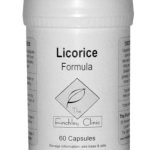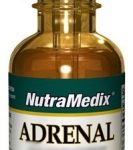There are many reasons why we get tired. Too little or bad sleep. Lots of hard work, family responsibilities and not enough relaxation. And many very specific medical conditions. Indeed, one of the latter causes that, to be frank, isn’t mentioned very often concerns the adrenal glands. Probably because many people aren’t actually aware of what the adrenal glands are and why they fatigue you and make you ill if things go wrong.
Every one of us has a pair of adrenal glands, each of which sits atop one of our kidneys in the abdomen region of the body. Along with the pancreas, parathyroid glands, ovaries/ testes, the pituitary glands and the thyroid, the adrenal glands are part of the endocrine system, which overall ensures hormones are produced and spread throughout the body to regulate many critical functions. The adrenal glands themselves are pretty much as crucial a part of this system as any other constituent part, as they’re tasked with producing and overseeing hormones that regulate growth, development, fertility and metabolism.
Adrenal Fatigue or Adrenal Insufficiency?
Experts believe there are two conditions that can occur when things aren’t right with the adrenal glands; although not all experts agree enough scientific evidence exists to categorically declare the first of them, adrenal fatigue, is a definite phenomenon. The thinking behind it is that your energy is severely sapped thanks to chronic physical and/ or emotional stress negatively affecting the adrenal glands’ hormone output.
And it’s easy for the layman, as it were, to confuse adrenal fatigue with the other condition – adrenal insufficiency or Addison’s disease, as it’s just as commonly known. This aliment, thoroughly recognised by medical experts, sees the adrenal glands close down production of the hormones aldosterone (crucial for the regulation of blood pressure and salt levels) and cortisol (which also plays a pivotal role in controlling blood pressure, inflammatory responses and tackling stress). Affecting around one in 100,000 people, Addison’s disease is rare and is believed to be caused by pre-existing autoimmune disorders, as well as the likes of fungal infections, tuberculosis and certain cancers.
Adrenal Fatigue and Addison’s Disease – symptoms
So how do you know whether you’re suffering from either of these two conditions? Well, of course, you ought to seek the view of a medical professional for confirmation, but there are definitely identifiable symptoms. For adrenal fatigue, as you’d probably imagine, we’re talking the likes of struggling to remain awake and having trouble waking up, as well as cravings for salt and sugar and other foods. Overall, it’s said that sufferers of adrenal fatigue tend to feel tired all the time.
Symptoms of Addison’s disease are usually more extreme. Reduced appetite, feeling weak and weight loss are often just the beginning, often followed by nausea, diarrhoea and vomiting; the likes of dizziness, low blood pressure and darkening skin in scars and skin-folds are far from unusual1. If left untreated, Addison’s disease can be fatal and medical treatment can involve hormone replacements, owing to the lack of aldosterone and cortisol1.
Looking after your adrenal glands
As you may have gathered, given the reasons why you may develop Addison’s disease, it’s not necessarily easy to prevent (as it likely would have been caused by other things wrong with your body); however, we can all do our best to try and prevent adrenal fatigue. It’s all about keeping the endocrine system in balance and, should you be feeling stress for different reasons in life, you can work towards doing this by setting time aside to rest and look into ways to improve your sleep hygiene. Exercise is highly advised too – it’s actually not counter-intuitive if you’re feeling tired because it helps relax the body physically, in that it naturally decreases stress and the amount of cortisol pumping around the body2.
Diet too is an important area to focus on. It’s imperative to try and remove endocrine disruptors (chemicals found in food, as well as pesticides and some plastics) from your diet – if consumed in excess they can interfere with adrenal glands and hormones – and instead try to replace them with healthy foods rich in protein and whole grains, as well as organic fruit and vegetables. Foods like these that offer proper, natural nutrition will be much better for your endocrine system – and the rest of your body.
Adrenal Supplements
Another highly advised way to strive for optimal adrenal health is to augment an improved diet with natural supplements. The following – along with many more – are all suitable for improving and maintaining the well-being of the adrenal glands and are available through The Finchley Clinic:
 Licorice Formula and Licorice Formula A – both are great botanical products designed to maintain healthy adrenal function, but the latter substitutes damiana for guarana/ Korean ginseng, which may be better for those that find the latter ingredients over-stimulating.
Licorice Formula and Licorice Formula A – both are great botanical products designed to maintain healthy adrenal function, but the latter substitutes damiana for guarana/ Korean ginseng, which may be better for those that find the latter ingredients over-stimulating.
 NADH – a sophisticated cognitive formula that, by offering a delicate balance of brain circulation agents and neurotransmitter precursors to improve memory, mental clarity, concentration and focus, may well aid sufferers of chronic fatigue.
NADH – a sophisticated cognitive formula that, by offering a delicate balance of brain circulation agents and neurotransmitter precursors to improve memory, mental clarity, concentration and focus, may well aid sufferers of chronic fatigue.
 Adrenal Support – comprises a blend of vitamins, minerals, herbs, nutrients and plant extracts to promote healthy adrenal function, especially during stressful periods of life.
Adrenal Support – comprises a blend of vitamins, minerals, herbs, nutrients and plant extracts to promote healthy adrenal function, especially during stressful periods of life.
References:
1. ‘Adrenal Insufficiency (Addison’s Disease)’. Pituitary Network Association. http://pituitary.org/knowledge-base/disorders/adrenal-insuffieciency-addison-s-disease.
2. Alghadir A. H. and Gabr S. A. ‘Physical activity and environmental influences on adrenal fatigue of Saudi adults: biochemical analysis and questionnaire survey’. J Phys Ther Sci. 27 (7): 2045-51. doi: 10.1589/jpts.27.2045. July 2015.
